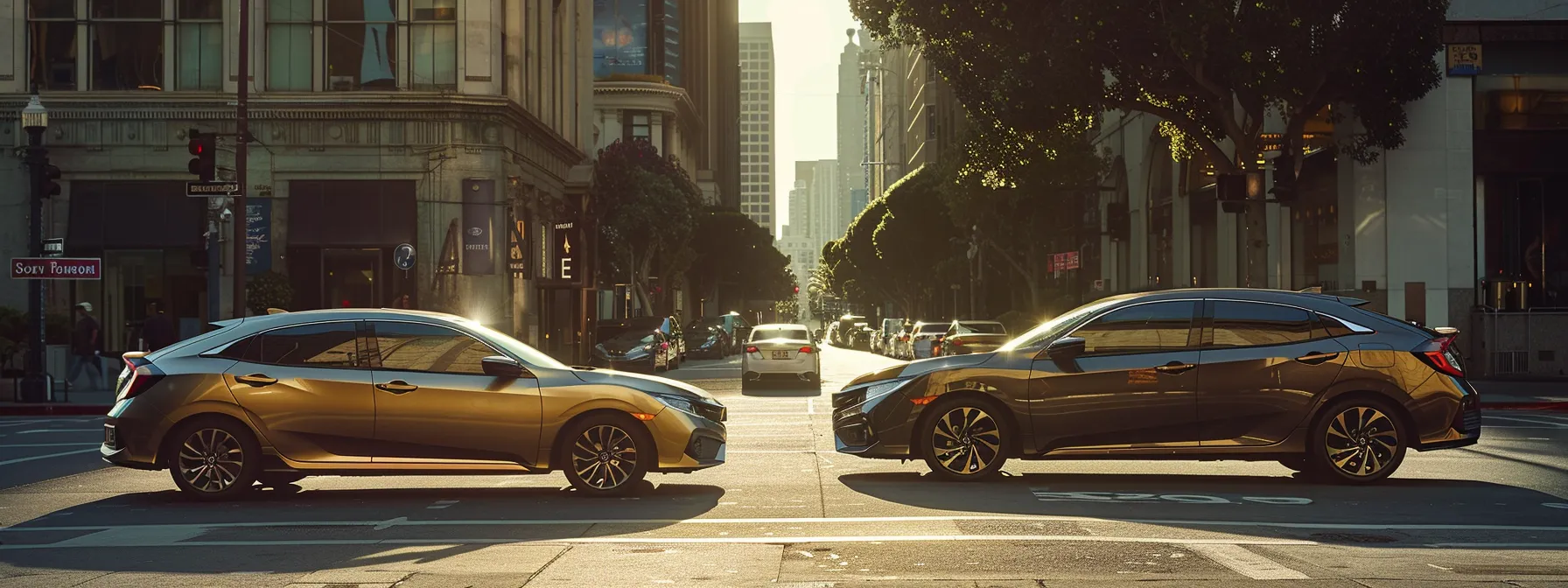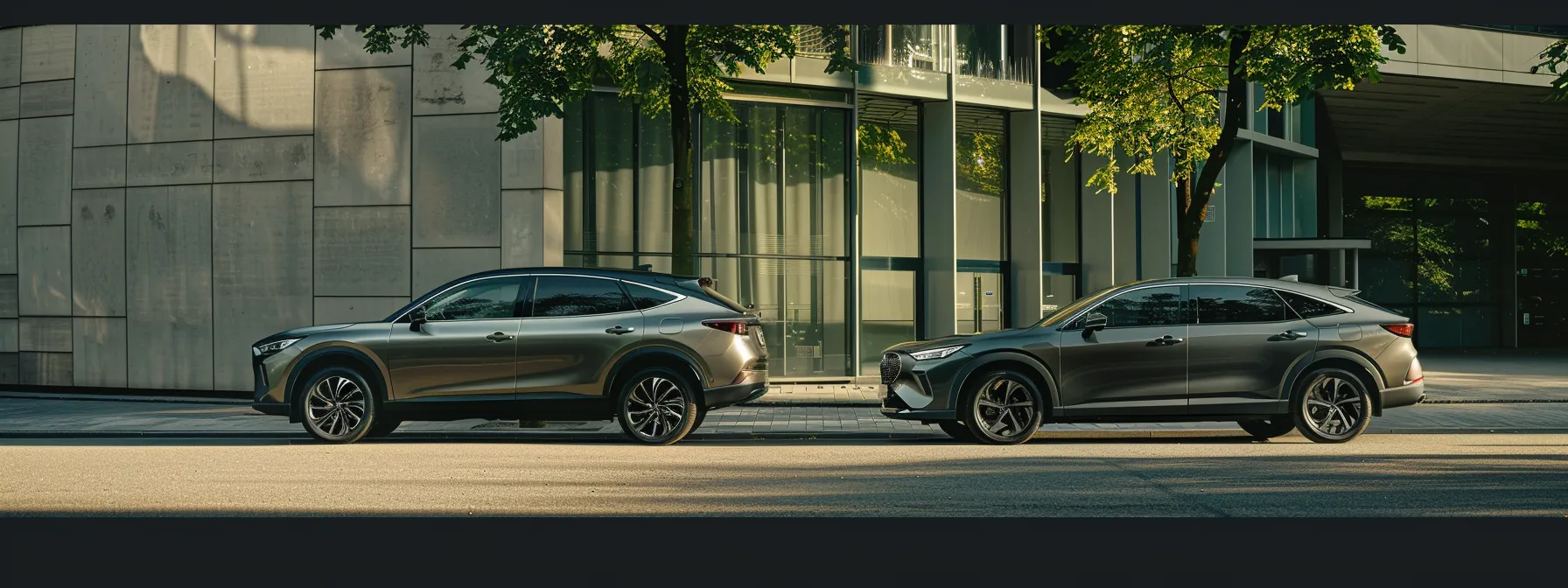Are you worried about making the right choice when purchasing your next vehicle at a dealership? Understanding the total costs, like how your credit score affects your interest rate, is crucial before you commit. In this article, I will address key questions to ask, such as evaluating the vehicle‘s history, exploring financing options, and the importance of scheduling a thorough test drive. By engaging with this content, you’ll gain valuable insights that can save you time and money, ensuring a smoother and more informed car-buying experience.
Key Takeaways
- understand all costs involved when purchasing a vehicle, including taxes and fees
- ask for a vehicle history report to reveal past accidents or issues
- inquire about additional charges, such as dealer fees, before finalizing your purchase
- evaluate financing options and potential trade-in values to maximize your budget
- arrange for a test drive and independent mechanic inspection for added peace of mind
Understanding the Total Costs of Your Vehicle Purchase

When considering your vehicle purchase, it’s essential to understand the total costs involved. This includes the final price with all taxes and fees. I recommend asking about any additional charges you might face, such as those linked to refinancing options. We’ll also explore how warranties, rebates, and extended warranties can impact your overall expenses, ensuring you make an informed choice as a customer.
What Is the Final Price Including Taxes and Fees?
When you’re in the market for a new vehicle, understanding the final price is crucial. This includes the sale price of the car, along with any taxes and fees that might apply. I always remind my customers to factor in their down payment, as it can significantly lower the amount you need to finance. Additionally, if you’re eligible for a tax credit, make sure to bring it up during negotiations – it can save you quite a bit of money!
It’s important to ask about any dealer fees or additional costs that could arise from financing options, especially if you’re considering a loan through a credit union. These fees can add up quickly and impact your overall budget. Always clarify the total out-the-door price, which gives you a complete picture of your expenses, ensuring that you feel confident in your purchase and avoid any surprises later on.
Are There Any Additional Charges I Should Be Aware Of?
When I assist clients in purchasing a vehicle, one of the most common questions I hear is about additional charges that can affect the overall price. These can include dealer fees, documentation fees, and any costs associated with lease or cash financing options. It’s important to ask about these charges upfront so you can calculate your budget accurately and avoid surprises later on.
Another key area to explore is any additional costs tied to warranties or service plans. Whether you’re considering a lease or buying outright, understanding these options can help you make informed decisions. I always encourage my customers to read the fine print and inquire about what’s included in the price, ensuring you’re fully aware of your total investment before making a commitment.
How Do Financing Options Affect the Overall Cost?
When it comes to financing your vehicle purchase, the interest rates you secure can have a significant impact on the overall cost. A higher interest rate means more money paid over the life of the loan, so I always advise my customers to shop around for the best financing options. Don’t shy away from negotiating terms that work for your budget, and consider whether refinancing may be advantageous down the road as your financial situation evolves.
Additionally, it’s essential to factor in sales tax and other fees when assessing financing options. Often, dealerships will include sales tax in the total financing amount, which can affect your monthly payments. I urge my clients to clarify how these taxes and any inspection fees will be handled so they can evaluate the total cost accurately. By understanding how financing influences your total expenses, you can make a more informed decision about the vehicle that fits your needs:
- Assess interest rates from various lenders.
- Consider the impact of sales tax on your financing.
- Understand how refinancing could benefit you.
- Inquire about additional fees, such as inspections.
- Evaluate monthly payment options that fit your budget.
You know the costs, but do you really know the car? Let’s look closely at the vehicle’s history and condition to make sure it’s a sound choice.
Evaluating the Vehicle‘s History and Condition

When considering a vehicle purchase, it’s vital to ask about its history and condition. Start by requesting a detailed history report, which can reveal past accidents or title issues. Next, inquire about any repairs or recalls the vehicle has undergone. Finally, make sure to check if maintenance records are available for review, ensuring you’re fully informed before buying from car dealerships near me.
Can You Provide a Detailed History Report?
When I’m helping someone buy a vehicle, one of the first questions I recommend asking is whether the dealership can provide a detailed history report. This report is crucial as it contains important information about the car’s past, such as previous accidents, title issues, and the number of previous owners. Having this information allows you to make an informed decision and can save you from potential headaches down the line.
In my experience, a comprehensive history report not only highlights past incidents but also offers peace of mind as you assess the vehicle’s condition and reliability. I suggest looking for reports from trusted sources like CARFAX or AutoCheck. Most reputable dealerships will have this information readily available for you, reinforcing transparency in the buying process:
- Inquire about the number of previous owners.
- Check for any reported accidents.
- Ask if there are any title issues.
- Review the vehicle’s service and maintenance records.
- Understand any recalls that have been issued.
Has the Vehicle Undergone Any Repairs or Recalls?
Before finalizing your vehicle purchase, it’s essential to ask whether the car has undergone any repairs or recalls. Knowing the repair history helps me ensure you’re aware of any previous issues. A dealership should provide transparent information about any significant repairs that might affect your decision. This not only helps indicate how well the vehicle was maintained but also offers you peace of mind moving forward.
Additionally, understanding if there have been any recalls on the vehicle is crucial. Recalls can often arise due to safety or mechanical concerns, and it’s important to know if those issues have been properly addressed. I always recommend verifying that any recall work has been completed, as this ensures the vehicle you’re considering meets safety standards and is ready for the road. Taking the time to ask these questions will pay off by helping you avoid potential problems down the line.
Are Maintenance Records Available for Review?
When considering a used vehicle, it’s crucial to ask if maintenance records are available for review. These records provide valuable insight into the car’s upkeep, showing whether it has been regularly serviced and if any major issues have been addressed. In my experience, a well-documented maintenance history can indicate how well the vehicle has been cared for and can lead to a more reliable purchase.
Having access to maintenance records also allows you to gauge any recurring issues that may have affected the vehicle over time. If a dealership provides these documents, it shows transparency and builds trust. It’s wise to take the time to review them before making a decision, as it helps ensure you’re investing in a vehicle that’s been properly maintained. Consider asking the dealership for details such as:
- Regular oil changes and service intervals
- Records of any major repairs
- Documentation of parts replacement, like brakes or tires
- Inspection records or emissions tests
- Any service bulletins related to the model
After understanding the vehicle‘s history and condition, it’s time to think about how to make it yours. Let’s look at financing options and payment plans that can help you drive away with confidence.
Exploring Financing and Payment Plans

When exploring financing and payment plans, it’s vital to know your options. I encourage you to ask about the financing options available to you, including special offers that could save you money. It’s also essential to understand the terms and conditions of the loan agreement so you can make a smart choice that fits your budget.
What Financing Options Are Available to Me?
When you’re exploring financing options at a dealership, it’s essential to know what choices are available to you. Many dealerships offer in-house financing, which can be convenient, but it’s also a good idea to check with banks or credit unions for competitive rates. I often advise my clients to compare options, as even a small difference in the interest rate can save you money in the long run.
Don’t forget to ask about any special financing offers or incentives that might be available, such as low-interest rates for qualified buyers or cash rebates on certain models. These deals can make a significant difference in your overall vehicle purchase cost. Talking to the financing department can provide clarity on terms like loan duration, monthly payments, and down payment requirements, helping you choose a plan that aligns with your budget and financial goals.
Are There Any Special Financing Offers Currently?
When considering a vehicle purchase, it’s essential to ask about any special financing offers available at the dealership. These offers can include low-interest rates, cash rebates, or promotional deals for qualified buyers. I often tell my customers that taking advantage of these incentives can significantly reduce the overall cost of their new vehicle, making it easier to fit into their budget.
It’s also a good idea to inquire about any seasonal promotions or limited-time financing offers that might be available. Dealerships frequently run campaigns during holidays or the end of the month to boost sales. By asking the right questions upfront, you can discover potential savings that may not be advertised prominently, ultimately helping you make a more informed decision about your vehicle purchase.
What Are the Terms and Conditions of the Loan Agreement?
Understanding the terms and conditions of your loan agreement is vital when purchasing a vehicle. These details include the interest rate, loan duration, and any fees that might be associated with the financing. I advise my clients to take their time reviewing this information and to ask the dealer for clarification on anything that seems unclear, as it ensures you’re fully aware of your financial commitment.
Additionally, pay attention to any penalties for early repayment or changes in payment schedules. Knowing how these aspects can affect your overall cost can save you money in the long run. From my experience, a straightforward conversation with the financing representative can help you navigate these details and secure a plan that fits your budget comfortably.
Now that we’ve covered financing and payment plans, it’s time to look at what happens when you drive off the lot. Understanding warranties and service agreements can protect your investment and give you peace of mind.
Understanding Warranties and Service Agreements

Before finalizing your vehicle purchase, it’s essential to understand the warranties and service agreements involved. I encourage you to ask about what the manufacturer’s warranty covers to ensure you’re protected against defects and repairs. Additionally, inquire if extended warranties are available for added peace of mind. Lastly, explore service and maintenance plans that can help keep your vehicle in top condition.
What Does the Manufacturer’s Warranty Cover?
When considering your next vehicle purchase, it’s important to understand what the manufacturer’s warranty covers. This warranty typically includes basic coverage for defects in materials and workmanship, ensuring that the vehicle operates smoothly for a certain period or mileage, such as three years or 36,000 miles. Knowing these details helps me explain to my customers how they can benefit from having certain repairs or replacements covered without bearing the cost themselves.
Additionally, I always tell my clients to inquire about the specific components covered under the warranty. Typically, the powertrain, which includes the engine and transmission, is a crucial part of the warranty. Understanding what’s included allows you to make an informed choice and gives you peace of mind, knowing that your investment is protected for the long haul. It’s a good idea to ask the dealer for a detailed breakdown of the warranty coverage so there are no surprises down the road.
Are Extended Warranties Offered?
When considering a vehicle purchase, it’s important to ask if the dealership offers extended warranties. These warranties can provide additional protection beyond the manufacturer’s warranty, covering repairs for various systems and parts for an extended period. I always remind my customers that selecting an extended warranty can be a smart choice, especially for vehicles known for higher repair costs, as it can save you money in the long run.
Before deciding on an extended warranty, be sure to inquire about the specific coverage options and any exclusions. Not all extended warranties are created equal, and understanding what is included can help you make an informed decision. I suggest asking about deductibles, the claims process, and whether the warranty is honored at multiple repair facilities. This way, you can ensure you are choosing a warranty that best suits your needs and provides the peace of mind you deserve:
- Ask if the dealership offers extended warranties.
- Inquire about coverage options and exclusions.
- Understand deductibles and the claims process.
- Ensure the warranty is honored at various repair facilities.
- Evaluate if it suits your long-term protection needs.
What Are the Options for Service and Maintenance Plans?
When exploring service and maintenance plans, it’s important to understand what options are available to you as a vehicle owner. Many dealerships offer these plans to help ensure your car stays in good condition by covering routine services like oil changes and tire rotations. I often tell my clients that investing in a maintenance plan can save them money in the long run, as it may cover essential upkeep that could prevent costly repairs down the line.
Additionally, I recommend asking about the specifics of any service plan offered. Some plans might provide complimentary services for a certain timeframe, while others could include roadside assistance or even vehicle inspections. By fully understanding the options available, you can choose a plan that fits your driving habits and lifestyle, giving you peace of mind knowing your vehicle is handled with care.
With a solid grasp of warranties and service agreements, the next step is to explore how you can save even more. Let’s dive into the opportunities for discounts and trade-ins that can make your purchase even more appealing.
Inquiring About Discounts and Trade-in Opportunities

When considering your vehicle purchase, I always suggest asking about current promotions or incentives available at the dealership. These offers can significantly reduce your overall cost. Additionally, understanding how a trade-in might impact the purchase price can help you negotiate better. Lastly, remember to explore whether any additional discounts can be negotiated, making your buying experience even more favorable.
Are There Any Current Promotions or Incentives?
When you’re shopping for your next vehicle, one of the first things I suggest asking about is current promotions or incentives. Dealerships often run special sales events or offer discounts that can provide significant savings on your purchase. For example, manufacturers might have seasonal offers or clearance sales that lower the price on specific models, allowing you to get a better deal than usual.
Don’t hesitate to inquire about financing incentives as well. Sometimes, dealerships provide lower interest rates or cash rebates that can greatly reduce your overall costs. By asking about these options, you can ensure you’re taking full advantage of any savings opportunities available, making your car-buying experience both enjoyable and budget-friendly:
- Ask about seasonal promotions or clearance sales.
- Inquire about financing incentives like low-interest rates.
- Look for cash rebates on specific models.
- Ensure you fully understand these offers to maximize savings.
How Will a Trade-in Impact the Purchase Price?
When you’re thinking about trading in your vehicle, it can significantly affect the purchase price of your new car. Often, dealerships will offer you a trade-in value that can be deducted from the overall cost, making it easier on your budget. I always recommend my clients to do some research beforehand to understand their current car’s market value; this information can empower you during negotiations and help you assess if the dealership’s offer is fair.
Additionally, it’s essential to communicate clearly with the dealership about your trade-in. Let them know upfront that you’ll be trading in your old vehicle, as this can keep the conversation focused on the total price you’ll be paying after the trade-in value is applied. By discussing both the trade-in and the purchase price as a combined package, you can ensure you’re getting the best deal possible. Here are some points to consider when negotiating your trade-in value:
- Research your vehicle’s market value prior to the visit.
- Communicate your trade-in intentions early in the negotiations.
- Compare trade-in offers from different dealerships.
- Check for any incentives that may apply to the trade-in.
- Negotiate both the trade-in and purchase price together.
Can Additional Discounts Be Negotiated?
When considering whether additional discounts can be negotiated, I always encourage my clients to ask directly about any available incentives. Many dealerships have room to maneuver on the price, especially if you’re serious about buying. During my time in the industry, I’ve found that dealers sometimes have promotions or discounts that aren’t advertised upfront, so it pays to ask.
Don’t hesitate to bring up any previous offers you might have seen online or through other dealerships. By approaching the conversation with a friendly attitude, you can often find a better deal that fits your budget. Just remember that every little bit helps when you’re making a big purchase like a vehicle, and asking about discounts might lead to a few extra dollars in your pocket.
After discussing potential savings, it’s time to see how the car feels on the road. Let’s schedule a test drive and inspection to truly understand its value.
Scheduling a Comprehensive Test Drive and Inspection

When you’re ready to purchase your next vehicle, arranging a comprehensive test drive is crucial. I recommend asking, “Can I arrange a test drive to assess the vehicle?” This allows you to experience how it feels on the road. It’s also wise to inquire, “Is it possible to have an independent mechanic inspect the car?” Ensuring a thorough inspection can provide added peace of mind. During the test drive, I suggest focusing on important features such as handling, comfort, and visibility. These steps will help you make a confident decision.
Can I Arrange a Test Drive to Assess the Vehicle?
When it comes to purchasing a vehicle, I always recommend arranging a test drive to truly assess how the car feels on the road. This is your opportunity to evaluate important features like handling, comfort, and visibility. If you’re unsure about the car’s performance or features, the test drive allows you to get a firsthand experience, making it easier to determine if it meets your expectations and driving style.
Don’t hesitate to ask the dealership if you can take the vehicle for a longer test drive, perhaps even on a route that mimics your daily commute. This way, you can better understand how the car handles in different conditions. Also, keep in mind that if you have specific concerns, such as visibility or sound levels, it’s perfectly okay to bring these up during your test drive to get a clearer picture of whether this is the right vehicle for you.
Is It Possible to Have an Independent Mechanic Inspect the Car?
When I’m guiding clients through the vehicle purchasing process, I often emphasize the importance of getting a second opinion. One valuable step is to ask the dealership if you can have an independent mechanic inspect the car before making your decision. This practice allows you to uncover any unnoticed issues, ensuring you’re aware of the vehicle‘s true condition and helping you avoid hidden problems that could lead to costly repairs later.
Having an independent mechanic assess the car not only gives you peace of mind but also demonstrates a commitment to transparency from the dealership. I’ve seen many clients walk away feeling confident after an independent inspection, knowing they made an informed choice. Don’t hesitate to make this inquiry; it’s a crucial step in ensuring that the vehicle you choose fits your needs and budget without surprises down the road.
What Features Should I Evaluate During the Test Drive?
When taking a vehicle for a test drive, I always make it a point to evaluate how comfortable the car feels while driving. Pay attention to the seating position and how easily you can reach the controls. You’ll also want to assess visibility; make sure you can see clearly out of all the windows and mirrors, which is essential for safe driving. Don’t forget to test the controls for features like air conditioning or infotainment systems, as ease of use can make a big difference in your daily driving experience.
Another key aspect to focus on during your test drive is the performance and handling of the vehicle. Notice how the car accelerates, brakes, and handles turns. If you drive on highways or back roads regularly, try to simulate those conditions during your test drive. It’s also helpful to listen for any unusual sounds, as they can indicate potential issues. Evaluating these features can help ensure you choose a vehicle that meets your needs and preferences. So, remember to consider the following during your test drive:
- Comfort and seating position
- Visibility through windows and mirrors
- Ease of use for controls and infotainment systems
- Acceleration and braking response
- Handling during turns and driving conditions
- Unusual sounds or performance issues
Conclusion
Asking key questions before purchasing your next vehicle at a dealership is crucial for making an informed decision. Inquire about the total costs, financing options, and the vehicle‘s history to avoid surprises and ensure you get the best deal possible. Always take the time to explore warranties and potential discounts, as these can significantly impact your overall investment. By being proactive and thorough in your inquiries, you empower yourself to make a confident choice that suits your needs and budget.
Recent Posts

Honda Civic vs Toyota Corolla: Ultimate MPG Comparison
Are you trying to decide between the Honda Civic and Toyota Corolla for your next car? Both models are known for their reliability and fuel efficiency, but which one truly offers better miles per gallon (MPG)? In this comparison, I’ll break down the official MPG ratings, real-world performance, and the engineering behind their fuel efficiency. [...]

SUV vs Sedan: Analyzing Depreciation Rates Comparison
When choosing a men’s wedding ring, many people overlook titanium, assuming it lacks the elegance of platinum or gold. However, titanium men's rings offer unmatched durability, lightweight comfort, and a modern aesthetic that aligns with today’s wedding ring trends. In this article, you will discover the benefits of titanium wedding bands, including their hypoallergenic properties [...]

Guide to Successful Bad Credit Auto Financing
Are you struggling to finance your car due to bad credit? You're not alone. Many people face challenges when seeking auto financing, but there are options available. In this guide, I will cover how to understand your credit score, explore bad credit auto financing options, and navigate the application process successfully. By the end, you'll [...]
Find the car you need.
At Indy Auto, we are committed to providing you with the best solutions tailored to your driving needs. Whether you’re navigating city streets or cruising down the highway, our dedicated team ensures that you have access to top-quality vehicles, parts, and services that enhance your driving experience.
